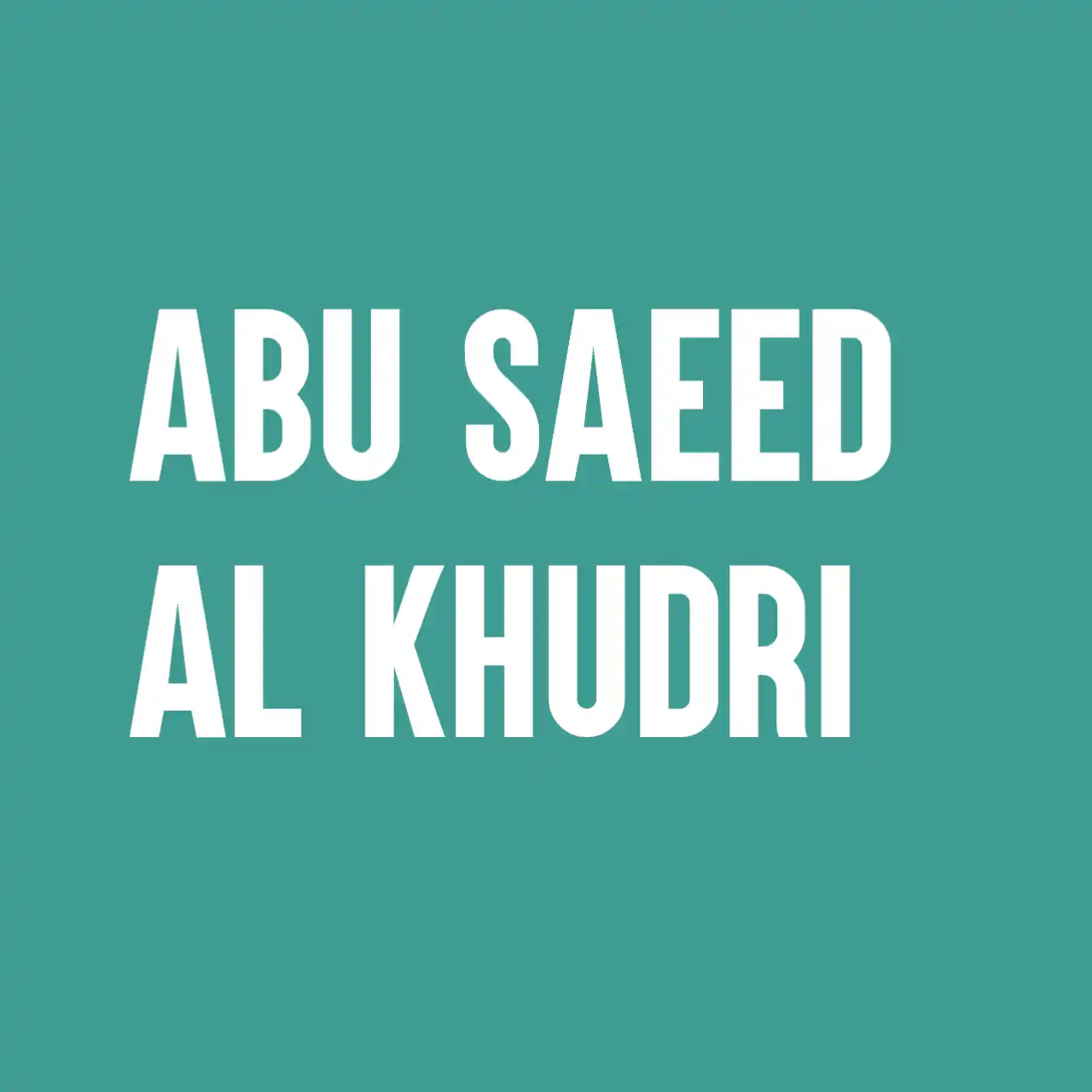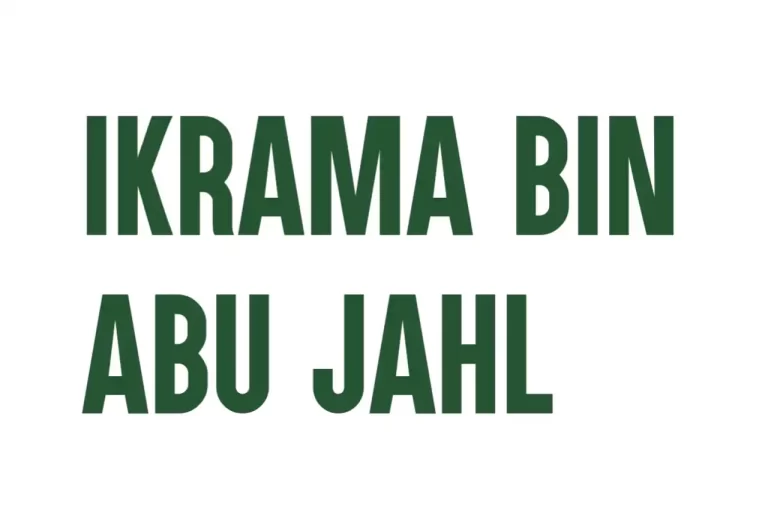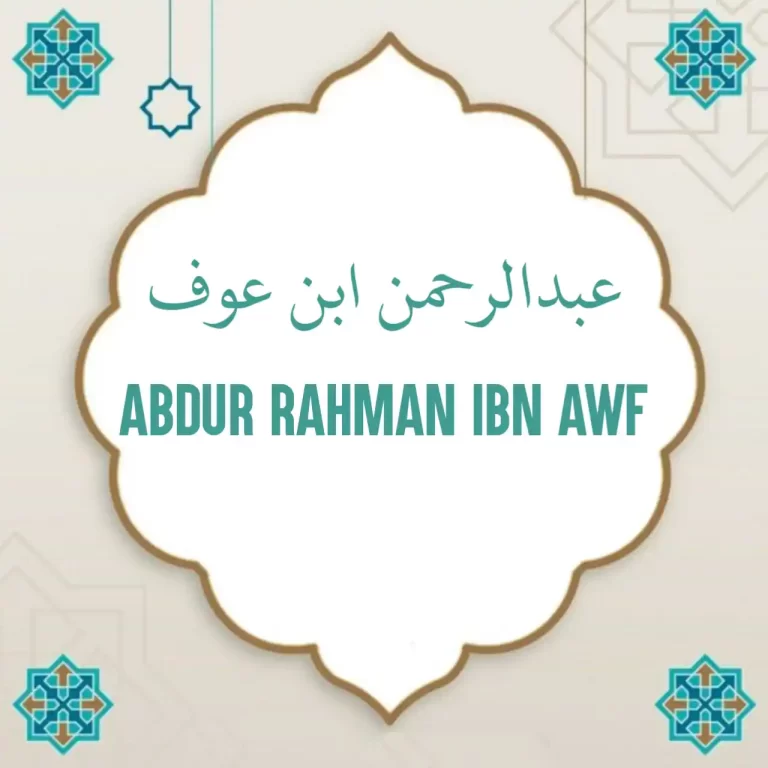Abu Saeed Al Khudri Biography
Sa’d bin Malik, also known as Abu Saeed Al Khudri, was from Madinah. In the early years of Islam, his father Malik bin Sinan converted to Islam. Then, Abu Said was a young child.
Advertisements
So, when he had only recently begun to experience life, he found himself in a Muslim family.
Biography Of Abu Saeed Al Khudri
Abu Said tried to be with the Prophet (PBUH), hear his beautiful speech, and experience the atmosphere of Paradise because his faith in the Prophet (PBUH) was so passionate.
Without taking into account his own strength, he wished to emulate what the Prophet had taught the populace. When Masjid an-Nabawi was constructed, he carried stones.
He was very eager to participate in the Battle of Badr but was not enlisted because of his young age.
Advertisements
He was 13 years old while the army was getting ready for the Battle of Uhud. He had a strong desire to carry out jihad. For the battle, he prepared.
Even though he was barely tall enough to hold a sword, he was confident that he could stand against the polytheists.
He was assured of himself. In order to participate in the Battle of Uhud, he requested his father. His father led him to the Prophet while holding his hand (pbuh).
Following that, he describes what transpired as follows: “When my father led me to the Prophet of Allah (PBUH), I was 13 years old.
He grasped my hand. My father informed him that I wanted to perform jihad when we saw the Prophet of Allah.
Advertisements
Because I was still a child, the Messenger of Allah rejected my father’s claim that “his bones are huge” and other grounds.
At the Battle of Uhud, Abu Said’s father fought valiantly. He was ultimately martyred.
The Prophet, who was standing next to Malik at the martyrs’ burial, said, “Hellfire will not touch a person whose blood is blended with my blood.”
Advertisements
Even though the Prophet was seriously injured, Malik sucked up the blood and did not let it fall to the ground when he noticed that the blessed face of Allah’s Messenger was bleeding.
On the route to Uhud, Abu Saeed Khudri was waiting with his mother to visit the Prophet and greet his father. He rode up to the horse-riding Prophet of Allah and began kissing his blessed knees.
The Prophet informed him about his father’s martyrdom. May Allah reward your father, he said.
Islam evolved into a sort of fortress for the underprivileged and those who studied it.
In the presence of the otherworldly wealth, which was the true wealth, the Muslims forgot about their material poverty.
The Companions who were illuminated by the belief in the Prophet of Allah saw that all of their suffering and difficulties were being transformed in him into beauty. Abu Saeed Khudri was one of those fortunate individuals.
His father was not wealthy. He had a hard time making ends meet. His family was having financial issues after he was martyred.
The mother of Abi Said Al Khudri once requested something from the Prophet of Allah (pbuh).
Abi Said Al Khudri first resisted going, but when his mother pushed, he was forced to go. He approached the Prophet of Allah and entered his presence (pbuh).
He was preaching when he said, “O believers! It’s time for you to be chaste and stop asking for things from other people.
Allah will reward those who are virgins and make wealthy those who are pleased. Nobody has ever been granted a better sustenance than patience, I swear by Allah, in whose palm of power my soul resides. I can only give you what I have if you ask for something from me.
Because certain individuals insisted on receiving certain items from him, prophet Isa delivered this lecture in that manner.
Hearing those comments, Abi Said Al Khudri abandoned the notion of expecting anything from the Prophet of Allah (PBUH).
When he got home, he informed his mother. Then he said: “Allah supplied us our nourishment when I returned without wanting anything from the Messenger of Allah.
We eventually joined the wealthy Ansar residents because things went so smoothly.
Due to his youth, Abu Said was unable to participate in the Battle of Badr and Battle of Uhud, but he did participate in all subsequent engagements.
I was 15 years old when I joined the Messenger of Allah on the Sons of Mustaliq Expedition.
When the Battle of Khandaq reached its most horrific point, Abi Said Al Khudri approached the Prophet and cried out,
“O Messenger of Allah! We are experiencing a lot of trouble. Is there not a prayer we could recite?
There is, the Prophet acknowledged. He then cried out, “O Lord! Close all of our entry points for the adversary to attack! Protect us from anything we are afraid of.
That prayer was recited by all the Companions. After some time, a violent storm erupted and turned the enemy’s headquarters upside down. Once the siege was over, the polytheists had to return back to Makkah.
Abu Saeed Al Khudri shared in the thrill of both the physical and spiritual jihad. He engaged in jihad while also attending Suffa School, where he learned and memorized hadiths.
He stayed in Suffa most of the time. Because of that, the Messenger of Allah occasionally paid him compliments.
The following is how he describes a recollection that is connected to it: “I was seated in a circle with the members of Ansar. A reader was reciting the Quran to us as some of us sat close due to a lack of clothing.
Then the Messenger of Allah (PBUH) appeared and joined us, standing next to us as though he were one of us.
The reader then came to a stop. What are you doing, the Messenger of Allah enquired. We claimed to be reading the Qur’an.
The Prophet of Allah motioned for us to form a circle. We gathered in a ring. I noticed that everyone save me was not recognized by the Prophet of Allah. He said to us,
Rejoice, you bunch of underprivileged people! Five hundred years will pass between you and the wealthy before they enter paradise.
When Abu Said came upon a new problem, he would not act without consulting the Prophet of Allah (pbuh).
The Prophet once dispatched them on a mission. They refused to let them stay the night in the territory of an Arab tribe. The tribe’s chief eventually received a scorpion sting.
No matter what they tried, they were unable to find a cure. They approached the Companions and enquired of their knowledge of the situation. “I know, but despite our requests, you did not entertain,” remarked Abu Said.
If you don’t give us anything, I won’t read. Arabs concurred. All of them went to the chief. Seven times, Abu Said read al-Fatiha chapter. The chief eventually made a full recovery. In response, the Bedouins gave them a flock of sheep.
Abu Said refused their request to divide the sheep. Without consulting the Prophet of Allah, we are unable to accomplish it. He will receive the sheep and be informed of what transpired. We’ll follow his instructions exactly. They concurred.
Abu Said told the Prophet about the incident once they arrived in Madinah. They were permitted to divide the sheep, according to Allah’s Messenger.
After the Prophet’s passing, Abu Said developed an interest in hadith and fiqh (pbuh). He had a large student body.
The Messenger of Allah taught Abu Said, who related 1170 hadiths. He consequently rose to the rank of “sixth Companion who narrated the most hadiths.” He narrated the following hadiths, among others:
The apartments in Paradise of those who love one another for Allah will be as radiant as the stars rising in the east and west.
In paradise, the question “Who are they?” will be posed. They are people who love one another for Allah, is the response that will be delivered.
“He will join Paradise if he consumes halal food, lives in line with the Sunnah, and does no wrong or injury to others.”
“You will follow in the footsteps of those who came before you, inch by inch and step by step, until the point when, had they gone into the lizard’s burrow, you would have done the same.
Do you mean Jews and Christians by your statements, we questioned? Who else could they be, he questioned?
“Until he enters Paradise, a believer will not find nice words and wisdom enough.”
Abu Said al-Khudri, who passed away in 74 H at the age of 86, had no fear of people when speaking the truth and was unconcerned if others disagreed with him when he performed what he believed to be right.
The hadith from the Prophet of Allah that states, “Do not be dissuaded by the fear of people linked to saying what you know to be true and what you have seen” served as his criterion for the matter.
You can also check the full biography of Abdur Rahman Bin Awf.
May Allah be pleased with him.
Advertisements




